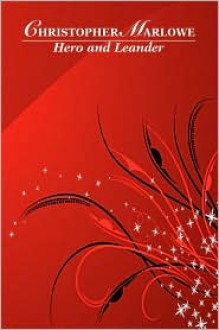
This poem appears to be a distant ancestor of all those horror films where teen couples die horribly as a consequence of sneaking off to have illicit pre-marital sex. Our cultural obsession with virginity as a symbol of moral purity and an only marginally more subtle form of Patriarchal reduction of the female to property never ceases to amaze me. Yep, it's weaker in the West, now, than it has been historically, but it's still present in some quarters, as evidenced by those same horror movies, and there are many countries where it's still a Really Big Thing that you have to be a virgin on your wedding night. Maybe one day the Middle Ages will come to a close? Don't hold your breathe, though.
Marlowe either abandoned this poem incomplete in favour of other projects or died whilst still actively working on it, I don't know which, but either way, he only wrote the first ~1/3 (or less, haven't actually counted the pages) and George Chapman took up the task of completing the story. Unfortunately, on this evidence, Chapman was not nearly as talented as Marlowe - which is more informative than it might seem at face value. See, Marlowe (and all the other Elizabethan-Jacobean playwrights and poets) exists under the enormous and deep shadow cast by Shakespeare, who went from an early career as Marlovian imitator to towering genius of dramatic-poetic expression. What Chapman shows, however, is that the better known contemporaries of Shakespeare, such as Marlowe, Jonson and Middleton were actually talented in their own right - they just had the misfortune to overlap with the best there's ever been by a remarkable stretch. In fact Shakespeare wrote a lot of plays and numerous of these less celebrated authors wrote works that were as good as or better than Shakespeare's weaker efforts. Chapman's mediocrity serves to illustrate that Marlowe was actually excellent - he just had a rival who permanently skewed the chart of dramatic-poetic genius.
It's a fun poem, especially at the beginning (Marlowe's bit) and the end (sudden turn to the Tragic), particularly if you like tales of gods and heroes and can swallow the ridiculous moral of the tale.

 Log in with Facebook
Log in with Facebook 





